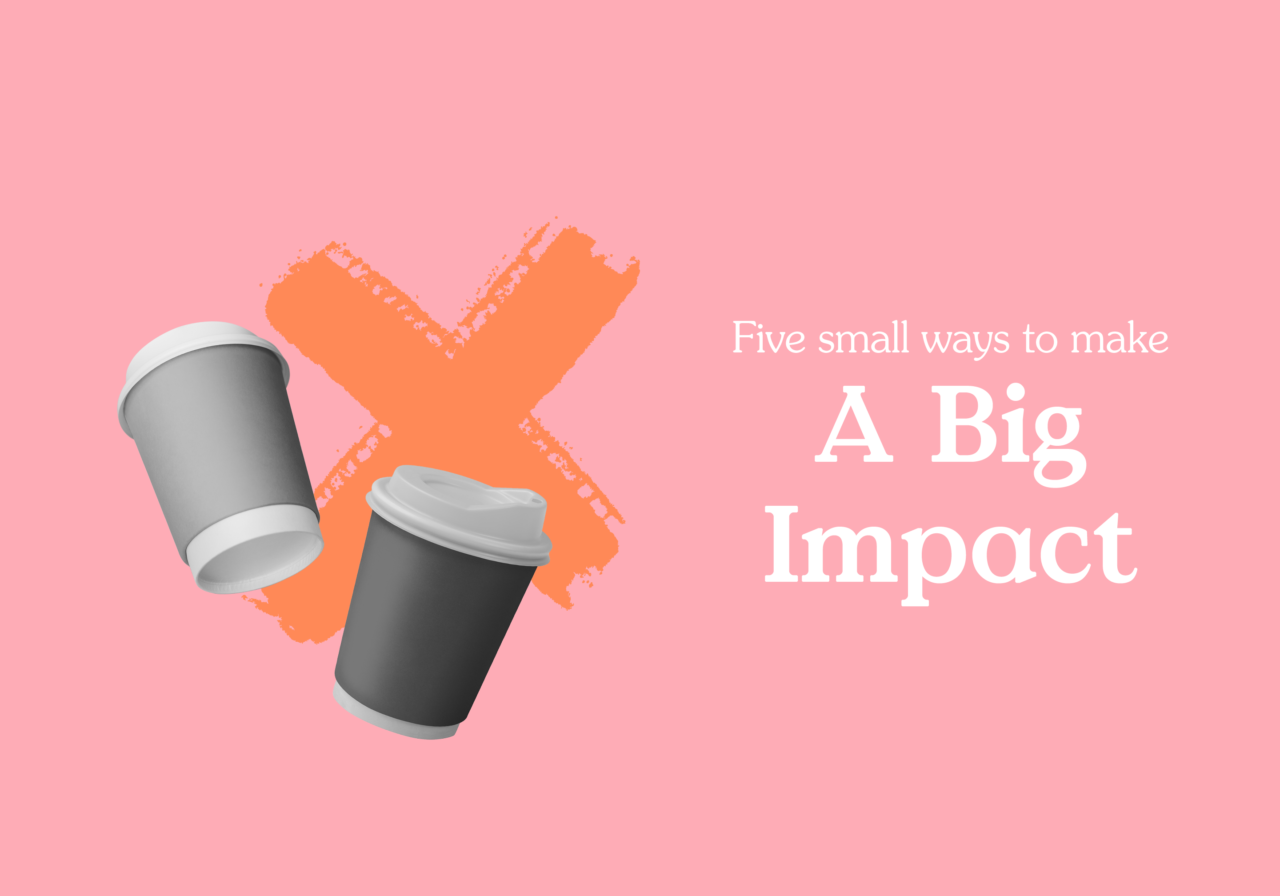Five small ways to make a big impact
#1 Consume less
Every thing we buy has an impact of some kind. While it’s not possible for most of us to go completely off grid, small changes can make a big difference. We live in a world where we are told to constantly buy new, bigger, better products – but taking the time to remind yourself that every purchasing decision can make a difference in some small way – it all counts. Look for opportunities to reuse, reduce and even upcycle the things that you already have.
#2 Reduce your food waste
Food waste has a massive impact on the environment (and the cost of living). In Australia, we waste a whopping 7.3 million tonnes of food annually. That’s about 300kgs of food per person, per year! But the good news is, we can all do our part to reduce food waste. By meal planning, making the most of leftovers, and composting our food scraps instead of sending them to the landfill Changing the way you buy and use food can lead to a healthy planet (and a healthier you!).
Which leads us to our next point…
#3 Start composting
Did you know that when food scraps end up in the landfill, they actually release methane gas? If food waste were a country, it would be the third largest contributor to global greenhouse gases, following the USA and China. That’s a lot!
The good news is that soon, we’ll all have a Food Organics Garden Organics bin – which is a kerbside collection service that allows food scraps to be added to your garden waste bin, so it can be recycled into top quality compost.
If this service is yet to be implemented in your local area, consider building your own organic compost or setting up a worm farm. If you live in an apartment, a bokashi bin suits smaller spaces. Whichever choice you make, be prepared to almost halve the amount of rubbish you put in your bin each week!
#4 Think twice about fast fashion
Did you know that the fashion industry is actually one of the highest polluting industries in the world? It’s estimated to be responsible for 10% of global CO2 emissions. Australians are the second largest consumers of textiles globally – we love to shop! But here’s the scary part – on average, we only wear 40% of our clothes. And of the clothes we donate to charity, only about 15% are resold within Australia, with the rest being sent to landfill or even overseas to developing nations.
Unfortunately, when clothes end up in the landfill, it can take hundreds of years for the materials to break down, and during this time they release methane. Let’s work together to reduce our impact on the environment by being more mindful of our fashion choices!
The most impactful action you can take to reduce your environmental footprint in the fashion world is to wear your clothes until they are worn out. But why stop there? Think twice before you buy that cheap shirt that you’ll only wear once, and instead focus on;
– Building an eco friendly wardrobe
– Shopping for pre-loved clothes
– Buying quality ethical brands
#5 Avoid single use coffee cups
Single use coffee cups are a big problem when it comes to litter and pollution. They’re not as easily recyclable or biodegradable as plastic bottles, and due to the thin plastic (which makes them waterproof), most coffee cups can’t be efficiently recycled.
Additionally, when people accidentally put coffee cups in their recycling bins, it can actually contaminate the other recyclable plastics and cause the entire load to go to the landfill. Up to 90% of these cups end up in the landfill, which is equivalent to about 60,000 kg of plastic every year.
But don’t worry, there’s a simple solution! By using a reusable cup, you can do your part to help the environment. Most cafes will be happy to use your personal cup, and it’s a fun way to show off your individual style. While you’re at it, why not switch to a reusable water bottle as well?
